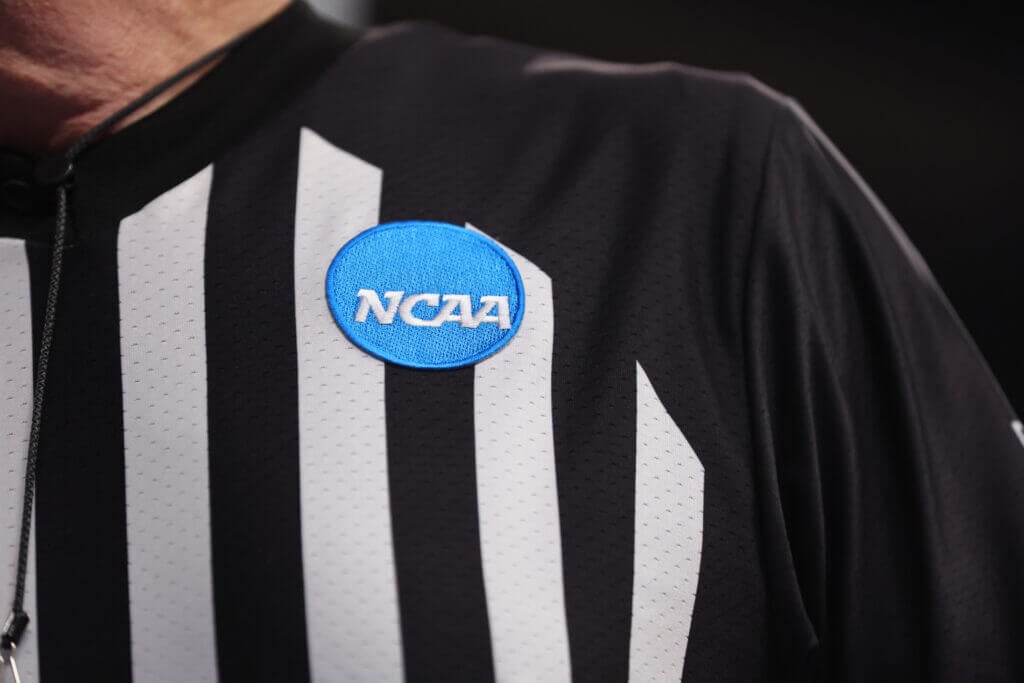
Universities and athletic departments will not be allowed to suspend athletes accused of sexual misconduct while investigations against the complaints are being conducted, according to the U.S. Department of Education’s amendments of regulations to Title IX.
The provision addressing student athletes’ due process and university investigations into sexual misconduct was one of dozens of sections addressed in the document released Friday and comes after years of proposed Title IX changes from the Biden administration. The document addressed about 235,000 comments from associations, advocacy organizations and affected students and families. The finalized regulations will go into effect Aug. 1.
The due process regulation was originally adopted in 2020 under the Trump administration by former Education Secretary Betsy DeVos. On Thursday, a senior administration official told reporters that to remove a student from an athletic team before the conclusion of an investigation is an unfair burden on that student, ESPN reported.
A Department of Education spokesperson told The Athletic the regulations do include an “emergency removal provision” that allows a school to remove a respondent from a team on an emergency basis, “but the removal is only allowed after the school conducts an individualized safety and risk analysis and determines that there is an imminent and serious threat to the health or safety of a complainant or any students, employees or other persons.”
“The school must also provide the respondent with notice and an opportunity to challenge the decision immediately following the removal,” the spokesperson said.
The DOE’s regulations provide clarity to universities about what they can do when an athlete is under investigation. Recently, in January, Illinois guard Terrence Shannon Jr. sued the university after he was suspended following his arrest on Dec. 28, for which he was charged with rape for an alleged incident that occurred in Lawrence, Kan., in September.
In the temporary restraining order, Shannon’s lawyers said he was not granted due process before being removed from the team, and they cited DeVos’ regulations that a university “may not suspend or remove the accused from an education program or activity pending a determination of responsibility at the conclusion of a grievance process.”
Shannon’s lawyer argued that the university extended the length of his suspension until the charges against him are resolved, but that case will not be tried until after the Illini’s season ends and the NBA Draft occurs on June 27.
“Does the presumption of innocence really mean anything? That question is at the heart of this case,” Shannon’s lawsuit against Illinois read, according to ESPN. “Illinois has promised [Shannon] that it would adhere to this presumption, but in practice Illinois has not applied it by suspending [him] and ruining his career as if he were already convicted. [Shannon] maintains his innocence, for the record. Sexual assault is a horrific crime, and [Shannon] is appalled that his name is mentioned in the same sentence with such a crime, and he in no way seeks to minimize that it is a real problem.”
On April 11, Illinois closed its investigation into the sexual assault allegations against Shannon. Robert Wilczynski, the university’s director of the Office for Student Conflict Resolution, said that the school had insufficient evidence to find Shannon in violation of the student code. Shannon is expected to appear in person or via video call for a preliminary court hearing in Douglas County, Kan., on May 10.
The Department of Education’s final amendments do alter several DeVos regulations, such as eliminating a rule directing schools to conduct live hearings with cross-examination to allow those who were accused of sexual harassment or assault to cross-examine their accusers. The new regulations also establish a lower burden of proof for survivors and students alleging sex discrimination, advising that a “preponderance of the evidence” — that something is more likely true than not true — be used as the standard of proof. The DeVos regulations allowed universities to use the higher “clear and convincing evidence” standard of proof. The new regulations allow for that only if it is used in “all other comparable proceedings, including proceedings relating to other discrimination complaints.”
Despite earlier versions of the Department of Education proposal including provisions regarding the eligibility of transgender athletes, officials said that is a separate issue from the broader Title IX rules. A ruling isn’t expected until after November’s election. When asked on a call Thursday, a senior administration official said those rules have a separate process, which is several months behind.
“For more than 50 years, Title IX has promised an equal opportunity to learn and thrive in our nation’s schools free from sex discrimination,” Secretary of Education Miguel Cardona said on a call with reporters Thursday night. “These final regulations build on the legacy of Title IX by clarifying that all our nation’s students can access schools that are safe, welcoming, and respect their rights.”
Required reading
(Photo: Michael Reaves / Getty Images)

